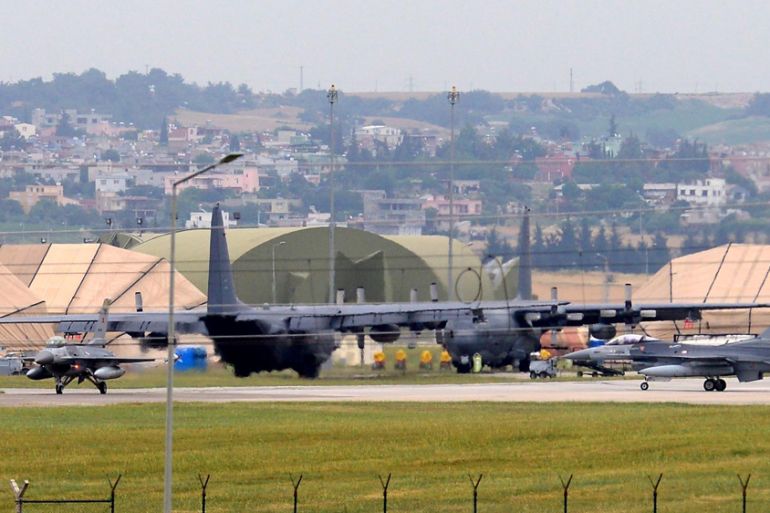US seeks clarification on Erdogan’s military base closure threat
US defence chief Esper says he needs to understand how serious Turkish president’s threats to close Incirlik base are.

US Defense Secretary Mark Esper has said he needs to speak with his Turkish counterpart to understand how serious President Recep Tayyip Erdogan was when he threatened to shut down the Incirlik airbase, which stores American nuclear warheads.
Erdogan’s warning on Sunday that he could close the strategic base – also used to attack the armed group ISIL (ISIS) – came in response to threats of US sanctions and a US Senate resolution that recognised mass killings of Armenians a century ago as “genocide”.
Keep reading
list of 3 itemsRussia, Turkey working on new S-400 missile contract: Official
US senators press for Turkey sanctions over Russia missile system
“It has not been brought up to me before. The first I heard of it was reading it in the papers as you just mentioned, and so I need to talk to my defence counterpart to understand what they really mean and how serious they are,” Esper told reporters on Monday.
The US has kept nuclear weapons in Turkey for decades, a legacy of the Cold War with the Soviet Union.
Turkey could also close the Kurecik radar base used by NATO forces, Erdogan said.
Esper said if Turkey was serious about closing down Kurecik, it would have to be discussed by NATO.
“They are a sovereign nation to begin with, so they have that inherent right to house or to not house NATO bases or foreign troops,” he said.
“But again, I think this becomes an alliance matter, your commitment to the alliance, if indeed they are serious about what they are saying.”
United in opposition
Last week, the US Senate unanimously passed a resolution that highlighted the mass killings of Armenians a century ago, a historic move that infuriated Turkey and dealt a blow to already-problematic ties between Ankara and Washington.
Erdogan said Turkey may respond with parliamentary resolutions recognising the killings of Indigenous Americans in past centuries as genocide.
The US Congress has been united in its opposition to Turkey’s recent policy actions. Republican senators have been incensed by Turkey’s purchase of Russia’s S-400 missile system, which the US says poses a threat to its F-35 fighter jets and cannot be integrated into NATO defences.
They have also moved to punish Turkey over its October 9 military operation in northern Syria. A US Senate committee backed legislation last week to impose sanctions, pushing President Donald Trump to take a harder line against Ankara.
The Trump administration has so far not imposed sanctions despite the president signing a sanctions law in 2017 that mandates financial penalties for countries that do business with Russia’s military.
“I think the issue here is once again what is Turkey’s direction with regard to the NATO alliance and the actions they are taking on any number of issues,” Esper said.
NATO diplomats worry that Turkey, a NATO member since 1952 and a critical ally in the Middle East, has increasingly acted unilaterally.
|
|